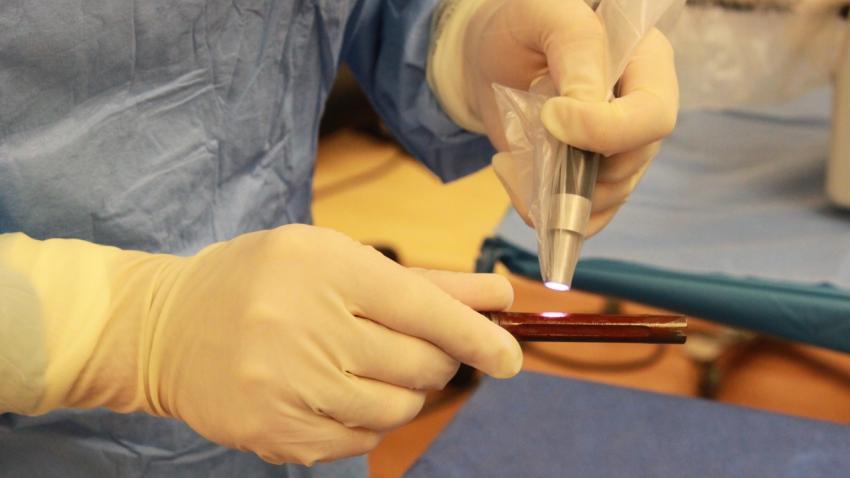You are here
Antimicrobial Coating for Orthopedic Implants Prevents Dangerous Infections
Customizable to individual patients and requiring less than 10 minutes to prepare and use, new surgical implant coating prevented 100% of infections in mice

Biomedical engineers and surgeons at Duke University and UCLA have demonstrated an antibiotic coating that can be applied to orthopedic implants minutes before surgery that eliminates the chances of an infection around the implant.
In early trials in mice, the coating prevented all subsequent infections, even without infusions of antibiotics into the bloodstream, which is the current standard of care. After 20 days, the coating did not reduce the bone’s ability to fuse with the implant and was completely absorbed by the body.
The results appeared online September 16 in the journal Nature Communications.
 The project began when Tatiana Segura, professor of biomedical engineering at Duke, met Nicholas Bernthal, interim chair and executive medical director at the David Geffen School of Medicine at UCLA, who specializes in pediatric orthopedic oncology and surgery. He told Segura that many children being treated for bone cancer have large portions of bone removed, which then requires orthopedic implants. But because the patients are usually also undergoing chemotherapy, their immune systems are weak and they are especially vulnerable to bacteria colonizing the surface of the implant.
The project began when Tatiana Segura, professor of biomedical engineering at Duke, met Nicholas Bernthal, interim chair and executive medical director at the David Geffen School of Medicine at UCLA, who specializes in pediatric orthopedic oncology and surgery. He told Segura that many children being treated for bone cancer have large portions of bone removed, which then requires orthopedic implants. But because the patients are usually also undergoing chemotherapy, their immune systems are weak and they are especially vulnerable to bacteria colonizing the surface of the implant.
“These kids face the choice of having chemotherapy versus saving their limb or even sometimes needing amputations to survive, which sounds horrific to me,” Segura said. “All they really need is something to rub on the implant to stop an infection from taking hold, because preventing an infection is much easier than treating one. So we came up with this coating technology that we hope will provide a solution.”
Read more about the science behind the antimicrobial coating here >>
